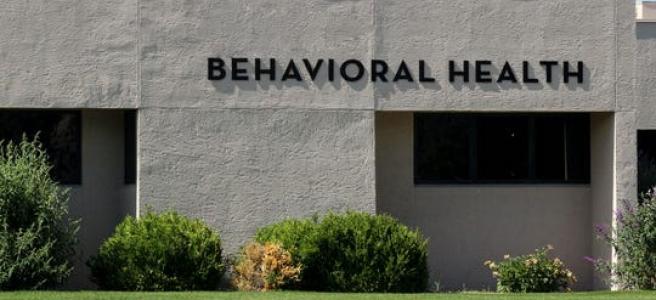
Behavioral health (Photo: KaraGrubis, Getty Images/iStockphoto)
ALBUQUERQUE - The need for mental health services in New Mexico is significant given its high rates of suicides and overdose deaths, but many counties in the sparsely populated state lack licensed providers that serve patients who rely on government assistance, independent U.S. investigators say.
A report released Monday by the U.S. Health and Human Services Department’s inspector general details challenges for Medicaid patients when it comes to accessing behavioral health care.
The investigators, in response to a congressional request, found less than one-third of licensed providers are located in rural areas even though nearly half of Medicaid enrollees in New Mexico live outside its population centers.
As part of the review, the investigators looked at the number of providers in the state, the extent to which they have waiting lists or have difficulty making referrals, and the challenges with continuity of care.
Most of the behavioral health organizations reviewed were unable to provide urgent appointments within 24 hours or routine appointments within 14 days as established by New Mexico’s standards.
Wait times for routine appointments ranged from nearly three weeks to three months, according to the report.
The inspector general’s report suggested that the challenges now faced by New Mexico — including provider shortages — are likely shared by other states and will require state and national attention.
“These challenges are particularly heightened as Medicaid agencies continue to be on the front lines of fighting opioid abuse and in ensuring that appropriate behavioral health services are available,” the report states.
The inspector general recommended that the New Mexico Human Services Department expand the state’s behavioral health workforce that serves Medicaid-managed care enrollees, as more than half of adults with mental illness in the state do not receive treatment and that can lead to worsening health and increased medical costs.
Increasing options for transportation, improving access to broadband and the use of telehealth services also were among the recommendations.
To improve the effectiveness of services, the inspector general also said the state should identify and share information about strategies to better coordinate care and expand initiatives to integrate behavioral and primary health care.
State Human Services Secretary David Scrase said Tuesday that New Mexico already is working on rebuilding its networks for treating mental ailments and addictions.
His agency announced earlier this month that it was seeking to bolster access to mental health and other health care services in rural areas with a $78.5 million proposed increase in annual Medicaid spending that would rely heavily on federal matching funds. Most of the money will focus on mental health services.
“I think this rate increase is an important start. It’s a pretty big investment,” he said.
In 2013, then-Gov. Susana Martinez’s administration froze payments to 15 nonprofits that provided mental health services after an audit identified $36 million in Medicaid overpayments. An investigation found no patterns of fraud, only regulatory violations, but many providers were driven out of business.
Other efforts underway include developing more substance abuse prevention programs, improving behavioral health services within the justice system, establishing community-based programs focused on services for children and the creation of a grant program aimed at building the health care workforce, particularly in the fields of primary care and psychiatry.
Scrase said another key will be broadband access, which would enable providers to reach people in more rural areas.
“Really, that’s central to what we need to do to succeed in these frontier counties,” he said.
More than 800,000 residents are enrolled in the state’s federally subsidized Medicaid program, which was expanded substantially in 2014 to include more individuals living just above the federal definition of poverty.

